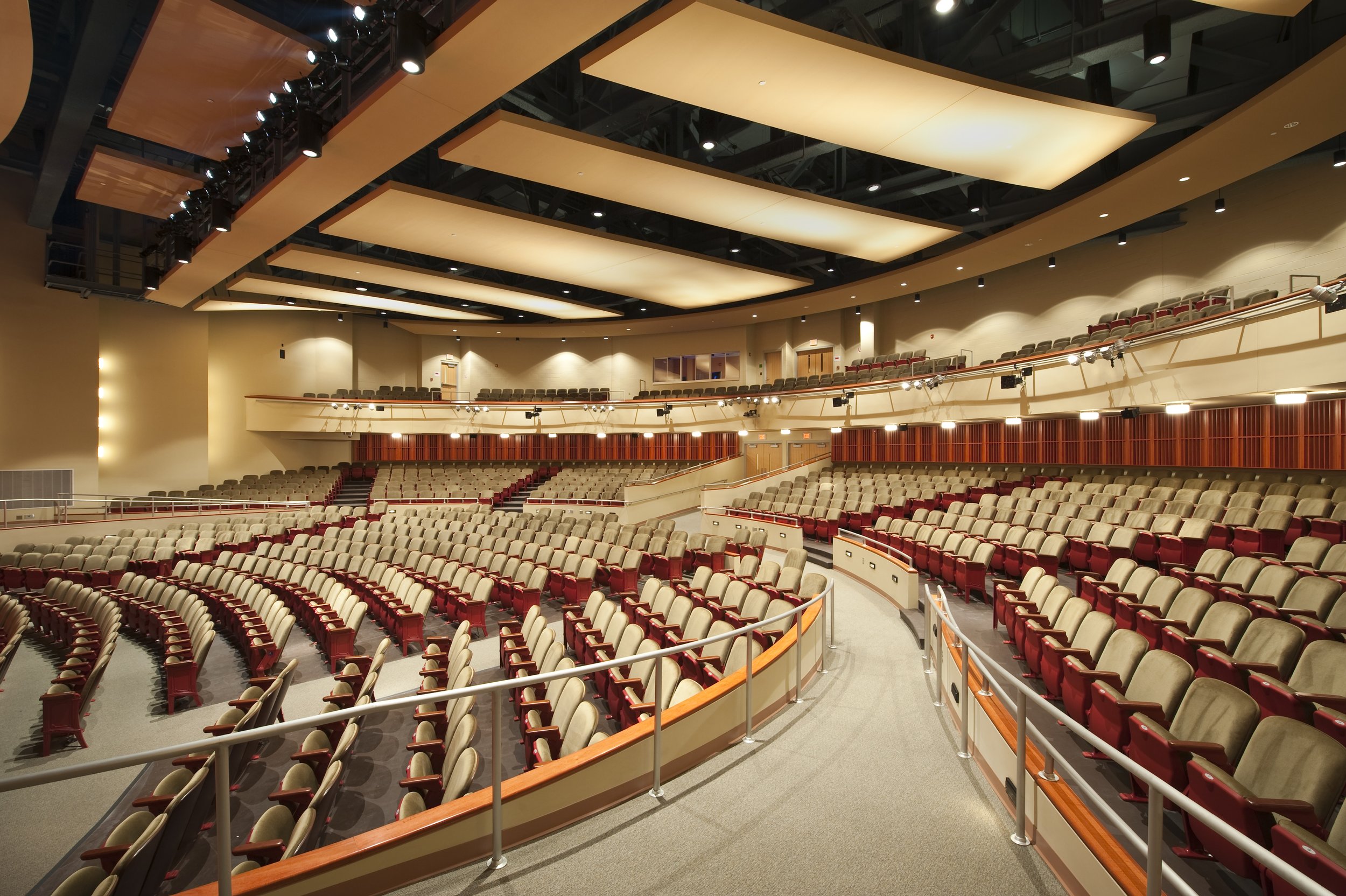
Theatre Consulting FAQs
We hope this FAQ answers most of your questions about working with a theatre consultant.
Feel free to contact us with any questions.
-
Whether you call us theatre consultants, theatre planners, or theatre designers we are specialists with expertise in two worlds - performing arts productions and architecture/construction. This expertise allows us to provide guidance to owners and architects on the planning, design, and equipping of performing arts venues. Everyone at Studio T+L has at least 20 years of experience designing theatrical productions so we have an intimate knowledge of theatre practices and what theatre artists need from their building. We also have two decades of experience collaborating with architects, engineers, and contractors.
-
The most obvious part of our work is designing and documenting the theatre's special requirements - the form and layout of the theatre, space adjacencies, stage rigging, dimming and control, seating, etc. It's important to note that this work does not happen in a vacuum-it is a joint effort between the design team and the theatre owner and users. At Studio T+L we often say that design is as much a process as it is the product delivered at the end of that process. Designing a performing arts space requires extensive collaboration between the owners/users and the design team, and we facilitate that collaboration. We listen carefully to the artists' needs and desires, convey them to the building's design team in language they can understand, and advocate for those needs and desires throughout the design and construction process. We listen to the design and construction team and translate their needs and concerns to the artists. By assisting and guiding the collaboration we help to ensure a successful project for everyone.
-
The answer is "no" for two reasons. The first reason is simple scheduling. Your designers and TDs already have work to do, and designing a new theatre or a renovation is a full time job. We value their input and collaboration, but they need to focus on productions while we focus on the theatre building. The second reason is that most people in the theatre don't have a thorough understanding of architecture, mechanical systems, and construction techniques, any more than architects and engineers have a clear understanding of theatre production and operations. Theatre systems must be integrated into the larger building, which requires specialized knowledge in order to effectively communicate and collaborate with the building design team.
-
Theatres are highly specialized buildings that must meet the unique requirements of the theatre companies that use them. Architects are responsible for the overall building, but don't design every element themselves. They hire a team of specialists that includes engineers, interior designers, landscape designers, and others. The space planning and technical requirements of a performing arts venue are best fulfilled by specialists such as theatre planners, acousticians, and A/V consultants.
-
As with your technical director, your local equipment supplier has another job and has incomplete information. A supplier may be able to assist you with a one-for-one exchange of old equipment for new, however they are unlikely to invest the time and effort needed throughout the design and construction process. In addition, an equipment supplier has a financial interest in selling you certain manufacturers or products. A professional theatre planner does not have such conflicts of interest and focuses on selecting the right system for each project. That said, your local supplier can be encouraged to bid on the project and may get special consideration.
-
As early as possible! Theater planners can help theatre owners and architects evaluate their goals for the renovation or new building, and provide important information on feasibility, cost, scheduling, and more. We have also assisted our clients in selecting the form of their new theatre (proscenium, thrust, etc.), hiring architects, and choosing buildings and building sites.
-
Hiring a theatre planner depends in part on the organization and in part on the question of responsibility. Most large organizations such as universities or municipalities will expect the architect to assemble the entire design team, including the theater planner. Smaller organizations may not have established requirements in this regard. In some cases our theatre clients have preferred to hire us separately from the architect to clearly establish that we are directly responsible to them.
-
We generally work on a flat fee that is based on the project size and our scope of work on the project. Our typical proposal describes our scope of work and includes a fee for the project broken down by project phases, but we can use other criteria if requested. We can explain how our fee is determined, and are happy to work with you to arrive at a scope, fee, and payment schedule that is mutually acceptable.
